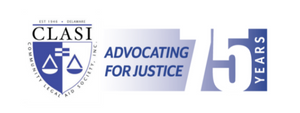This morning the Court of Chancery issued an opinion in our lawsuit to ensure adequate and equitable funding for public schools. The suit was brought by two civil rights organizations, Delawareans for Educational Opportunity and the Delaware NAACP.
Vice Chancellor Laster ruled in a 135-page opinion that the Delaware Constitution “obligates the State of Delaware to create and maintain a system of public schools that successfully educates Delaware’s students.” He also ruled that the Constitution’s “Education Clause grants the State broad discretion over the means it chooses to achieve this end, as long as it achieves that end” and that “the issue in this case is whether the means that the State has chosen is achieving that end for Disadvantaged Students.” Determining that the complaint “pled sufficiently that Delaware’s system of public schools fails to provide an adequate education to Disadvantaged Students,” he denied the state’s motion to dismiss the case. The Opinion also states:
“A court must also take into account and afford due deference to the political branches’ efforts to address the multi-faceted and ever-evolving challenges inherent in designing and implementing an educational system. No system will be perfect. Ultimately, however, the Education Clause contains a qualitative component, and a complaint can state a claim for a violation of the Education Clause if it sufficiently alleges (as is undisputed here) that the State has failed to meet it.
. . .
“The plain language of the Education Clause, its legislative history, and decisions from other states all point to the conclusion that the Education Clause has a qualitative component. The Education Clause requires that the General Assembly establish and maintain a system of public schools that lives up to that description in substance and not just in form.
. . .
“Like the vast majority of other courts that have interpreted similar provisions, I do not believe that the Education Clause grants the General Assembly the authority to self-monitor, thus depriving the judiciary of its role in a system of checks and balances. The Education Clause assigns a task to the General Assembly. It does not manifest a textually demonstrable commitment to the notion that the General Assembly should judge for itself whether it carried out that task.”
According to the lawsuit, the state is failing students from low income families, students with disabilities and students who are English language learners. Test scores for these disadvantaged students are far below state standards set by the Delaware Department of Education. The scores demonstrate, by the state’s own measures, the failure to adequately educate these students.
Plaintiffs are represented by Ryan Tack-Hooper and Karen Lantz of the ACLU of Delaware, and Richard Morse and Brian Eng of the Community Legal Aid Society, Inc.
